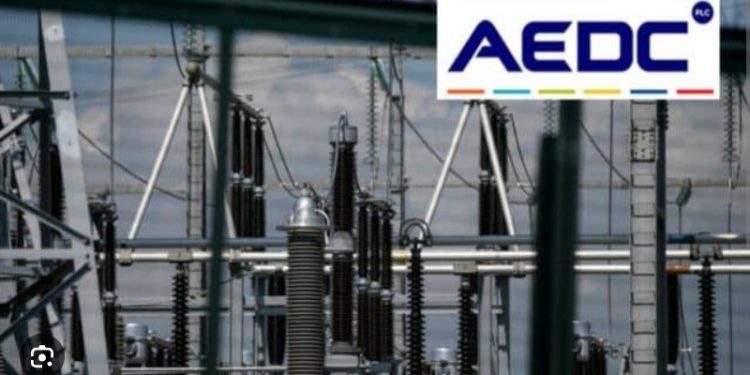The Acting Managing Director/CEO of the Abuja Electricity Distribution Company (AEDC), Chijioke Okuwuokenye, has explained that the challenges of debt accumulation and overloading are among the key reasons why power distribution companies (DisCos) reject electricity from the national grid, even amidst frequent blackouts in various communities.
Speaking at the recent Power Correspondents Association of Nigeria (PCAN) annual workshop, Okuwuokenye, represented by AEDC’s Chief Operating Officer, Olumide Jerome, elaborated on how these issues have affected the reliability and sustainability of power distribution in Nigeria.
During a session titled “Ending the Talk, Moving the Action,” Okuwuokenye responded to concerns that electricity load rejection was one of the primary causes behind the persistent collapse of the national grid.
He highlighted that although power distribution companies are often blamed for blackouts. The real issue often lies in the financial and operational challenges faced by the DisCos, which include outstanding debts owed by consumers and a widespread failure to pay for electricity services.
“One of the major reasons why DisCos sometimes reject electricity from the national grid is because of the debts they are already carrying and the risk of overloading their infrastructure,” Okuwuokenye said.
“The situation is worsened by the prevailing culture in Nigeria, where many people do not see the need to pay for electricity, despite consuming it regularly.”
The AEDC boss also pointed out that, in some communities, customers pay a negligible amount for electricity — sometimes as little as N2,000, regardless of their consumption.
This, he noted, creates a significant financial shortfall for power distribution companies, which in turn impacts their ability to maintain and expand infrastructure, and effectively distribute power.
The comment sheds light on the deeper systemic issues facing Nigeria’s power sector, where low revenue collection, high operational costs, and insufficient investment in infrastructure combine to create a vicious cycle of inefficiency.
This is further exacerbated by the endemic issue of electricity theft, which remains rampant in many parts of the country.
In addition to financial challenges, the AEDC MD stressed the need for improved public education regarding the entire electricity value chain — from generation and transmission to distribution and payment.
He called for a national orientation campaign that would help consumers better understand their roles in sustaining the power sector, including paying for the electricity they consume and reducing wastage.
According to Okuwuokenye, educating consumers about the impact of non-payment and electricity theft on the power grid would be crucial in fostering a more responsible and sustainable energy ecosystem.
While the AEDC has continued to face challenges in managing the demands of its large customer base, the company has also been working on improving customer relations and expanding metering programs. However, progress has been slow due to a combination of financial constraints and bureaucratic delays.
The workshop, themed “Ending the Talk, Moving the Action,” served as a platform for power sector stakeholders to discuss the pressing issues affecting the industry and propose solutions for addressing Nigeria’s ongoing electricity crisis.
In his remarks, Okuwuokenye reinforced that without collective action from both government and consumers, the country’s power woes would continue.
Nigeria’s energy sector has long been plagued by issues of infrastructure decay, mismanagement, and insufficient funding. Despite efforts to privatize the sector and invite private sector participation, the performance of DisCos like AEDC has remained suboptimal, with frequent blackouts and a poor power supply network continuing to hamper economic activities.
To break the cycle of debt, inefficiency, and electricity overloading, stakeholders agree that a combination of better governance, public education, and more aggressive infrastructure investment is needed.















